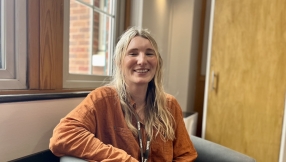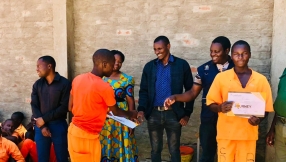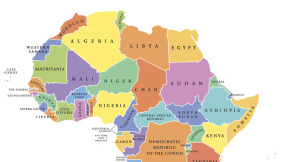Rio+20: triumph or disaster?
The text of the draft agreement, which had been dissected by many NGOs and the media, has now been signed. The agreement is much weaker than we had hoped for, with few specific promises. It contains a lot of ‘we encourage’ and ‘we urge’, but less ‘we will’. There was also little negotiation after 20 June, which was when world leaders arrived.
But it’s not all bad news. There has been widespread support for the creation of Sustainable Development Goals, within a time-bound process. We hope that these will be ambitious, include poor communities in their drafting, and link closely to the Millennium Development Goals process.
We were also pleased to see support for better reporting from business, including Nick Clegg’s announcement on companies disclosing their greenhouse gas emissions. And Rio has again broadened the number of people engaged with and passionate about securing a green and fairer future.
Working with our partners in Brazil has been particularly encouraging. Tearfund supports Igrejas Ecocidadas (Church Eco-citizens), a campaigning network of thousands of Christians across Brazil. They have mobilised churches and individuals to act, sending over 4000 postcards to Brazilian president Dilma and organising side events in Rio. There can be no doubt that many Christians in Brazil care about the environment and want to see a more just and sustainable future.
Just days before Rio+20, the G20 leaders met in Mexico. The G20 was focussed on the eurozone and the world’s current financial troubles; the environment was, at best, on the fringes. More joined up thinking on the economy and the environment is needed, rather than continuing along two parallel tracks. In 20 years time we will need a different type of economy, but we won’t get there with small, short-term tweaks.
Acting on climate change is a priority for Tearfund. We had hoped that there would be a sense of urgency following Rio, giving momentum to future talks. The lack of ambition and energy we’ve seen is concerning. Bold commitments are needed, especially around decreasing global carbon emissions, raising $100bn a year for climate finance and eliminating fossil fuel subsidies.
As well as the official negotiations, Rio also hosted the People’s Summit. This ran for 9 days and was attended by environmentalists, indigenous tribes and groups like Igrejas Ecocidadas. But the hot topics amongst civil society and NGOs, such as ending fossil fuel subsidies and climate change, weren’t areas where leaders in the high-level negotiations made commitments.
Moving forwards, we want leaders and those attending the UNFCCC (UN Framework Convention on Climate Change) in Doha later this year to be prepared to take the steps that are needed. For this to happen, we need to continue to put pressure on the government and show them that the environment and poor communities are important to us. Christians have a valuable role to play in making our voices heard and speaking up for those whose voices are all too often drowned out.













